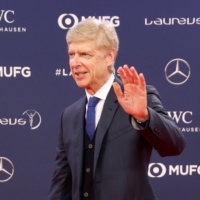For a few hours on Sunday, it appeared as though the J. League was preparing to abolish its long-cherished hometown regulations, which were established at the time of the league’s founding to encourage clubs to create closer ties with their local community.
According to Sports Nippon, the league was preparing to scrap its current hometown rules and introduce a new system that would allow clubs in rural areas to play home games and establish academy or school programs in urban areas.
The newspaper also reported that the league was going to allow clubs to sell their naming rights to corporate sponsors — a drastic change hearkening back to the pre-J. League era, when Urawa Reds were known as Mitsubishi SC and Sanfrecce Hiroshima played as Mazda SC.
The report triggered an immediate outcry from fans, who envisioned doomsday scenarios such as FC Tokyo reverting to Tokyo Gas FC and Vissel Kobe pulling up stakes and relocating to the capital’s National Stadium.
Club officials, including Kashima Antlers CEO Fumiaki Koizumi, who is also the chairman of marketplace app developer Mercari, vehemently pushed back on the report, and a league statement issued later Sunday morning reaffirmed its commitment to hometown-first principles.
Follow-up reports indicated that the league was instead re-evaluating rules governing the abilities of clubs and their sponsors to conduct marketing activities outside of hometown areas — a far less extreme revision than what Sponichi had first published.
In a hastily arranged Tuesday media briefing, those changes were confirmed by league officials, who cited the diversification of fan bases, Japan’s general population shift toward metropolitan areas, an increase in national companies becoming club sponsors and the rapid growth of online marketing.
Under the new rules, small-market clubs could stage viewing parties or activation events for fans in larger cities. The percentage of fans registered to the J. League’s website who live outside their club’s hometown area can range anywhere from 30% to 75% — a significant segment of the market that sponsors have until now been unable to reach effectively.
“We don’t consider this a change that will bring clubs back from the brink after the financial impact of the pandemic,” J. League Managing Director Masaaki Kimura said, emphasizing that the decision was part of the league’s long-term business planning.
Tokyo makes move for Wenger
A familiar face could be returning to the J. League — at least on occasion.
Local media reported over the past week that FC Tokyo have sought out legendary coach Arsene Wenger to become an adviser to the club.
The Frenchman won the 1995 Emperor’s Cup and 1996 Super Cup as manager of Nagoya Grampus, where he established himself before a shock appointment to run Premier League giant Arsenal.
After leaving the London club in 2018, Wenger was appointed FIFA’s chief of global football development and is one of the key architects of a controversial plan to create a biennial World Cup schedule.
According to Sports Hochi, Wenger would be tasked with defining Tokyo’s style and philosophy, and would be expected to have a significant impact on the team’s flourishing academy program.
The ambitious move by Tokyo comes as the club prepares for a new era, with tech firm and major sponsor Mixi expected to acquire a majority stake in the organization — ending more than 20 years of control by club founder Tokyo Gas.
Mixi, whose major properties include the social media platform of the same name and game developer XFLAG, has moved aggressively into the sports industry in recent years and owns the B. League’s Chiba Jets Funabashi.
League’s universal markings win award
The league’s universal markings, introduced ahead of the 2021 season in an effort to make players easier to identify, have been given a Good Design Award.
Danish-Japanese firm Kontrapunkt developed a custom typeface for uniform names and numbers that is intended to be easier to read for fans — whether they’re watching in person or on a screen — with color combinations chosen in consideration of viewers with color blindness.
“This was one of the first such initiatives we’ve made to create a better viewing experience for everyone, and we’re incredibly happy to have been recognized in this way,” J. League Chairman Mitsuru Murai said. “We want to continue taking on these challenges.”
In a time of both misinformation and too much information, quality journalism is more crucial than ever.
By subscribing, you can help us get the story right.
SUBSCRIBE NOW




